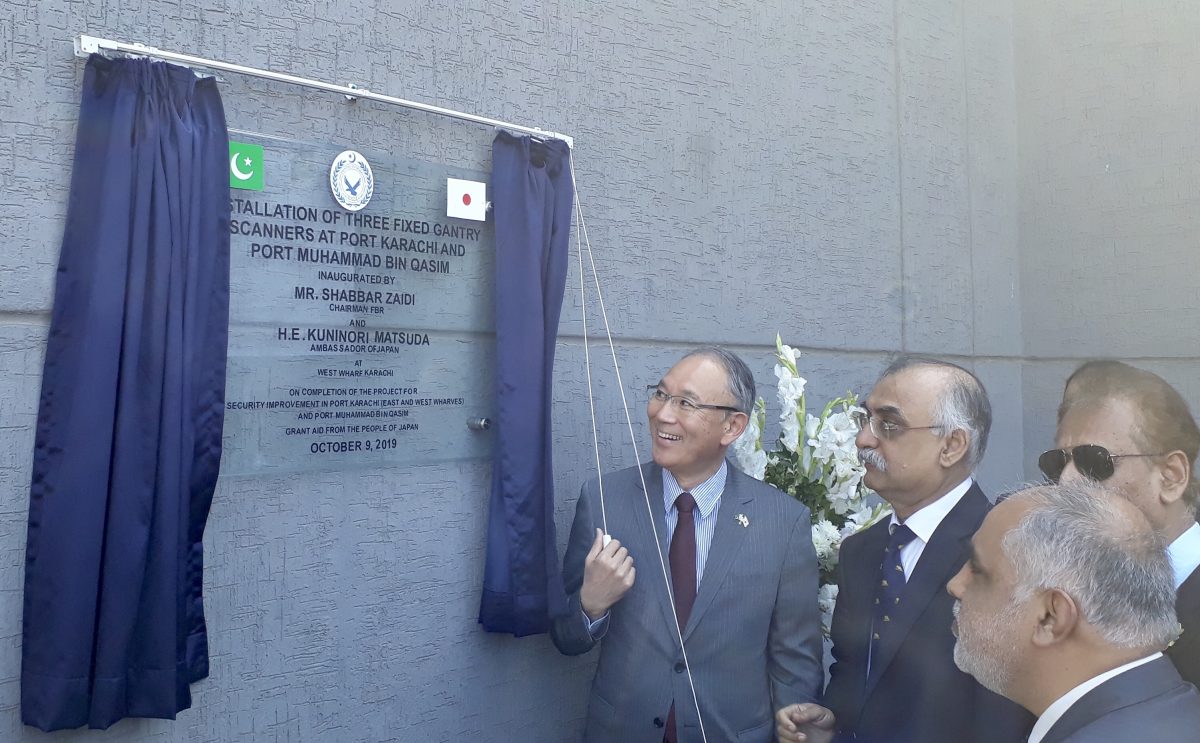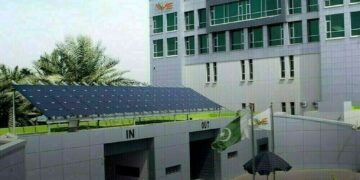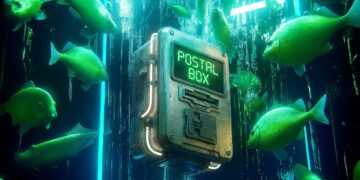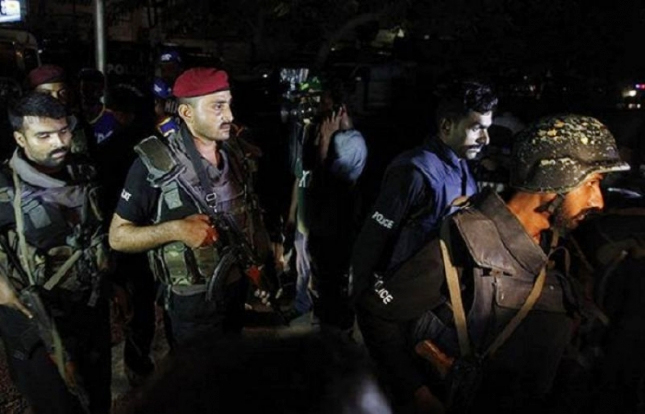The Government of Japan has extended assistance to Pakistan Customs and Federal Board of Revenue (FBR) for establishment of three new state of the art Non-Intrusive Inspection (NII) Containers Scanning Terminals at East and West Warf in Karachi Port and Port Bin Qasim. Under the Japanese grant assistance, Japan International Cooperation Agency (JICA) implemented “The Project for Security Improvement in Port Karachi and Port Bin Oasim” amount of JPY 1.877 billion (approximately PKR 2.78 billion Pakistan Rupees).
An inauguration ceremony to this effect was held at Karachi whereby H.E Mr. Kuninori Matsuda, Ambassador of Japan to Pakistan and Syed Muhammad Shabbar Zaidi, Chairman, FBR inaugurated newly established NII Containers Scanning Terminal at East Warf at Karachi Port.
At the handover ceremony, H.E. Mr. Kuninori Matsuda, Ambassador of Japan to Pakistan said Karachi Port and Bin Qasim Port are considered the busiest ports of Pakistan and are greatly contributing to the trade and economic activities of the country. These ports are not only important for Pakistan’s economic prosperity but also have greater significance as international trade ports due to its geographic location. The scanners installed would not only help in detecting illegal trade and smuggling to combat terrorism but would also improve the performance of ports to boost international trade. He further emphasized the hope that the grant aid from Japan would support the work of Pakistan customs and would further strengthen the existing bond of friendship between the two countries.
Mr. Shigeki Furuta, Chief Representative of JICA Pakistan office in his remarks said that the project would provide adequate technological support to Pakistan Customs to ensure compliance of Security and Facilitation in a Global Environment (SAFE) Framework Standard set by World Customs Organization (WCO). He elaborated that the project will improve the ability of Pakistan Customs to detect and deal with high-risk consignments and increase efficiencies by expediting the clearance and release of goods. Furthermore, the working environment of the custom officers will also improve, who are bound to conduct physical inspections of all inbound and outbound consignments.
Speaking on the occasion, Syed Muhammad Shabbar Zaidi, Chairman, FBR thanked Government of Japan for their cooperation for this vital project. Dr Jawwad Uwais Agha, Member Customs (Operations), FBR, also thanked government of Japan and stated that the Non-Intrusive Inspection (NII) functionality imparted by these scanners will enhance trade facilitation by Pakistan Customs and hoped that this cooperation will continue in future as well for other ports in the Country.
Under this project, three Non-Intrusive Inspection (NII) Container’s Scanning terminals has been constructed at East & West Warf at Karachi Port and Port Bin Qasim, which includes Scanner, terminal building, image scanning & analyzing equipment, waiting room for container’s driver, and backup facility for electricity.
Each Scanning terminal have been directly connected with Pakistan’s Web Based One Customs (WeBOC) system with scanning capacity of 7-8 containers per hour with total capacity of scanning over 450 containers per day altogether in 20 hours which is the estimated net operation hours under the 24 hours operating conditions. The project also trained 60 officers of Pakistan Customs as Image Scanning Analyst for effective utilization and future sustainability of project.
The Japan funded project will facilitate the increasing volumes of cargo traffic at Pakistani ports as well as provides essential security to the global supply chain and will contribute to the socio-economic development of Pakistan by generating revenue collection and trade facilitation.


















